Abstract
Protection against influenza A virus infection in mice immunized with recombinant nucleoprotein (rNP) was studied. Nucleoprotein-immune mice were protected against a lethal challenge with A/Puerto Rico/8/34 (A/PR8) virus but showed considerable morbidity before recovery. Local boosting of the immune system with rNP by intranasal immunization improved the protection in NP-immune mice, and the decrease in morbidity after infection was reflected in accelerated clearance of virus from lungs. However, immune, boosted mice also rapidly cleared an antigenically unrelated influenza B virus from their lungs. Mice immunized with rNP precipitated with alhydrogel, that subsequently developed significant resistance to virus infection, failed to generate detectable levels of class I major histocompatibility complex (MHC)-restricted killer cells. Furthermore, B10.A(5R) mice that are non-responders for NP-specific class I killer cells could also be protected by immunization with rNP. In contrast, rNP-immunized mice developed strong proliferative T-cell responses to rNP. These data argue for an important role for helper T cells rather than virus-specific class I cytotoxic T cells in protection against influenza virus infection induced by rNP.
Full text
PDF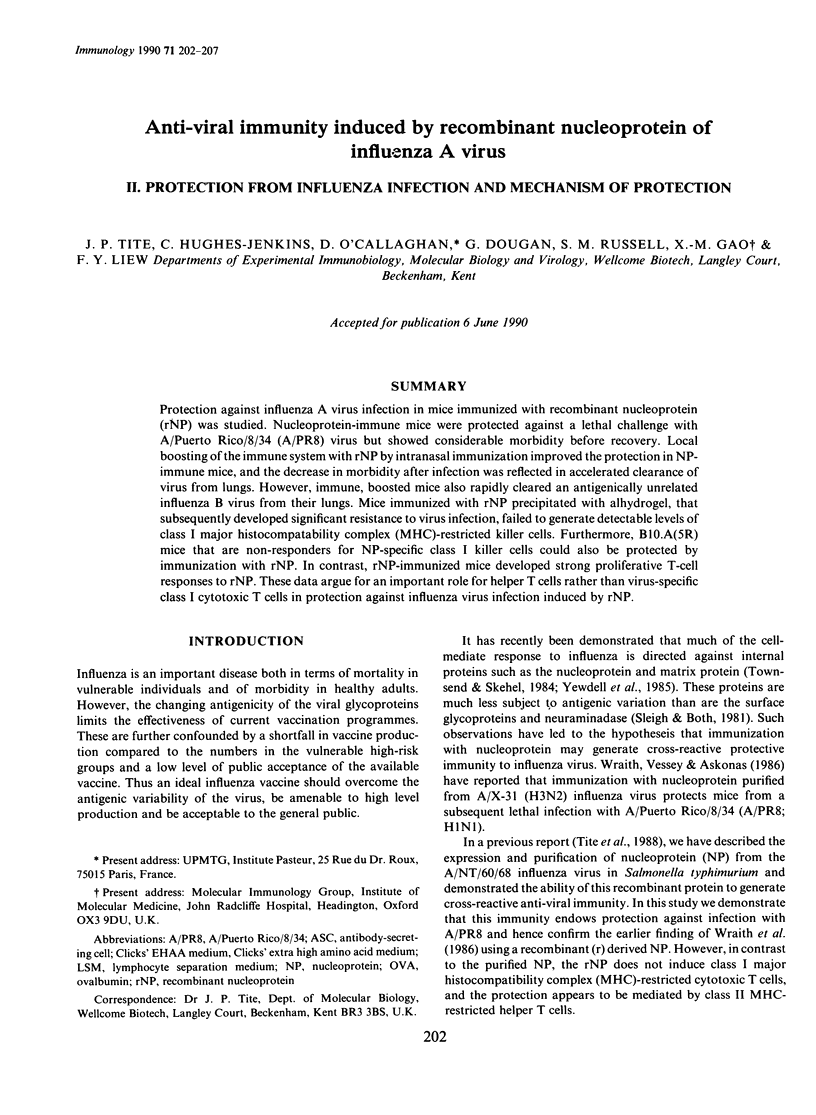
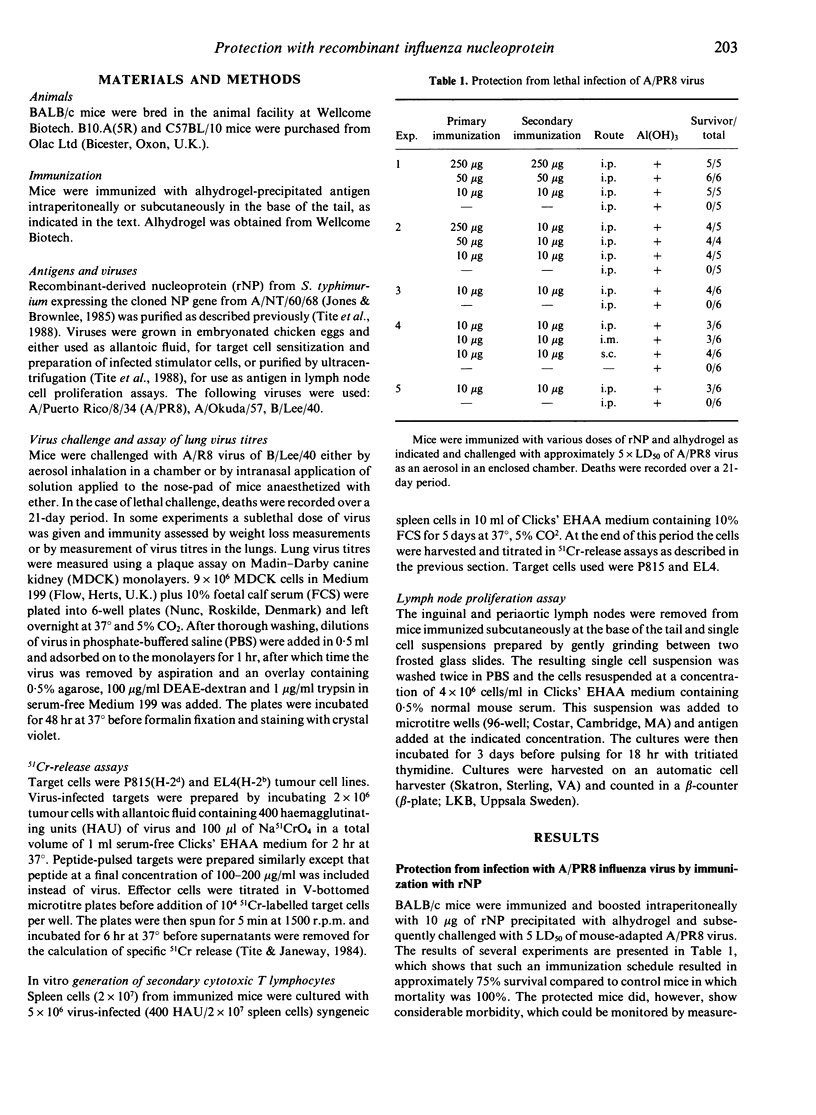
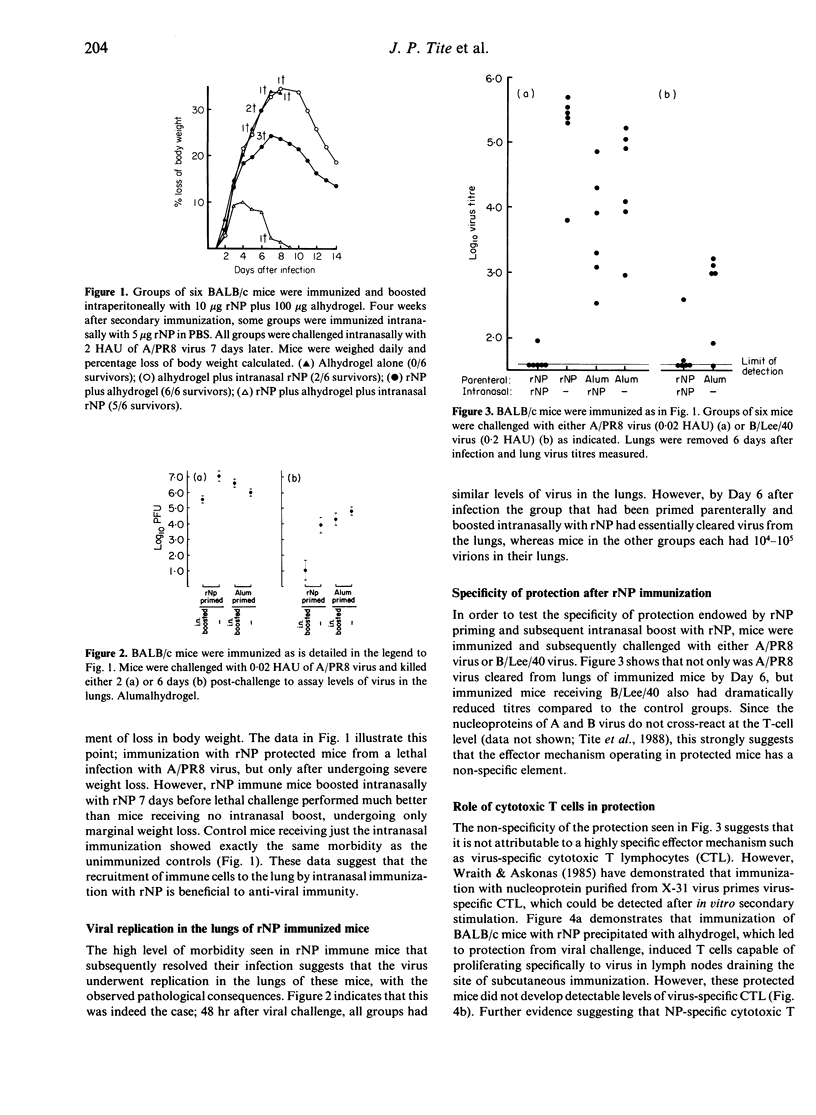
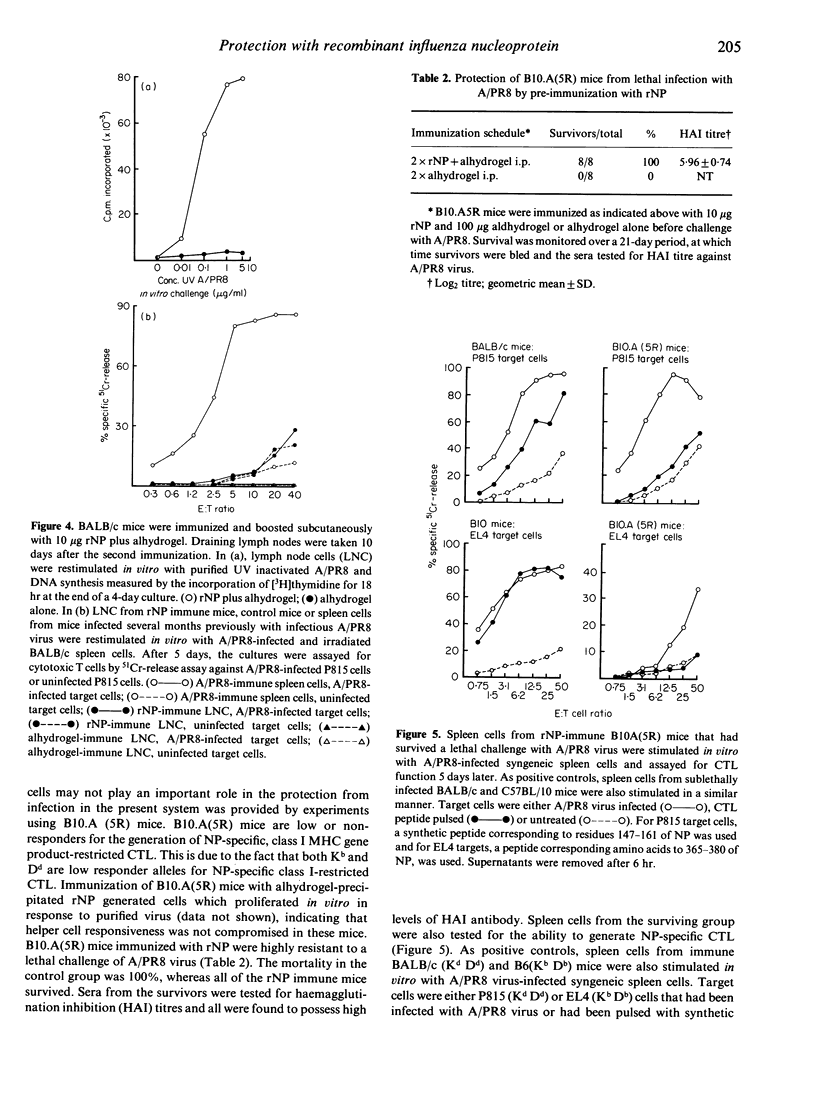
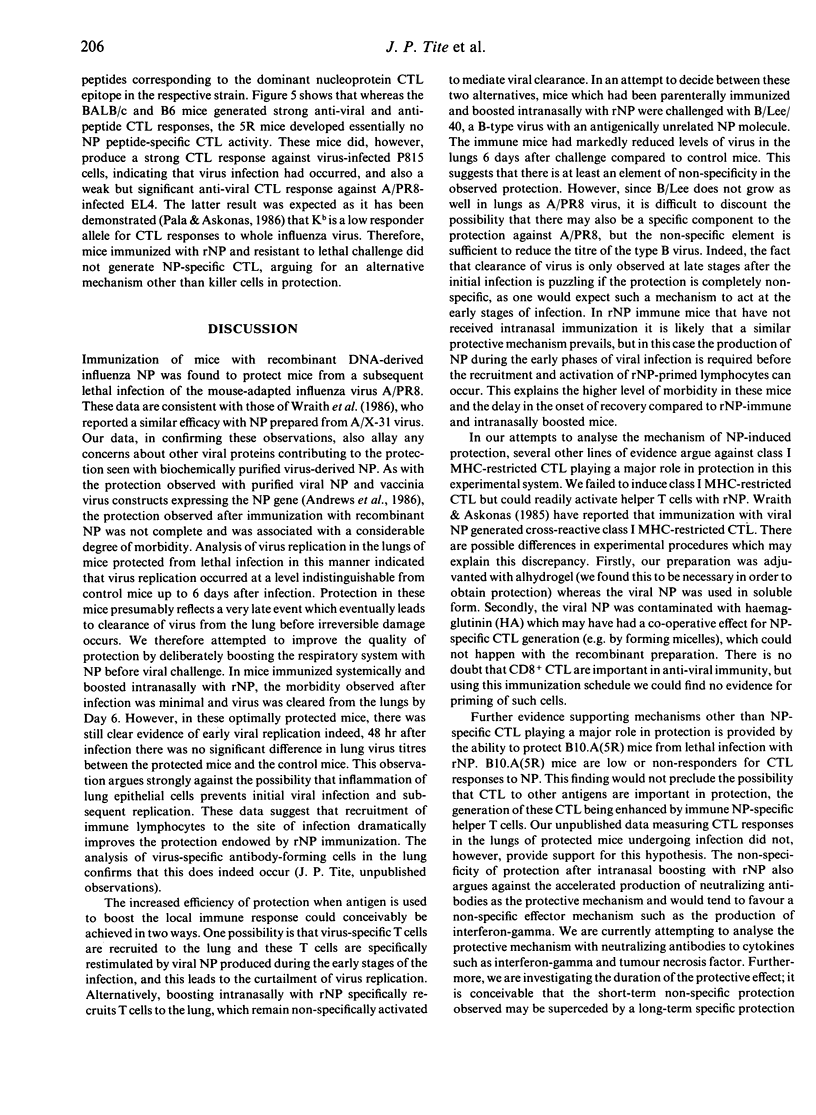
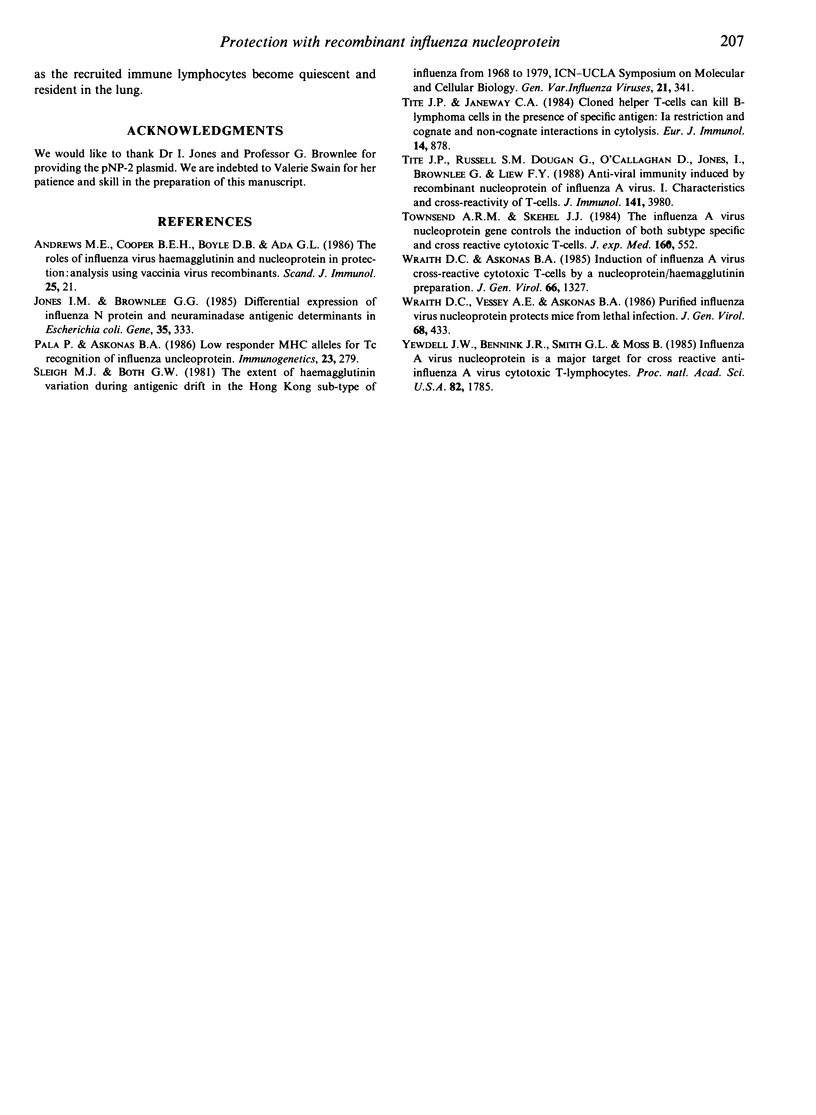
Selected References
These references are in PubMed. This may not be the complete list of references from this article.
- Andrew M. E., Coupar B. E., Boyle D. B., Ada G. L. The roles of influenza virus haemagglutinin and nucleoprotein in protection: analysis using vaccinia virus recombinants. Scand J Immunol. 1987 Jan;25(1):21–28. doi: 10.1111/j.1365-3083.1987.tb01042.x. [DOI] [PubMed] [Google Scholar]
- Jones I. M., Brownlee G. G. Differential expression of influenza N protein and neuraminidase antigenic determinants in Escherichia coli. Gene. 1985;35(3):333–342. doi: 10.1016/0378-1119(85)90012-5. [DOI] [PubMed] [Google Scholar]
- Tite J. P., Janeway C. A., Jr Cloned helper T cells can kill B lymphoma cells in the presence of specific antigen: Ia restriction and cognate vs. noncognate interactions in cytolysis. Eur J Immunol. 1984 Oct;14(10):878–886. doi: 10.1002/eji.1830141004. [DOI] [PubMed] [Google Scholar]
- Tite J. P., Russell S. M., Dougan G., O'Callaghan D., Jones I., Brownlee G., Liew F. Y. Antiviral immunity induced by recombinant nucleoprotein of influenza A virus. I. Characteristics and cross-reactivity of T cell responses. J Immunol. 1988 Dec 1;141(11):3980–3987. [PubMed] [Google Scholar]
- Townsend A. R., Skehel J. J. The influenza A virus nucleoprotein gene controls the induction of both subtype specific and cross-reactive cytotoxic T cells. J Exp Med. 1984 Aug 1;160(2):552–563. doi: 10.1084/jem.160.2.552. [DOI] [PMC free article] [PubMed] [Google Scholar]
- Wraith D. C., Askonas B. A. Induction of influenza A virus cross-reactive cytotoxic T cells by a nucleoprotein/haemagglutinin preparation. J Gen Virol. 1985 Jun;66(Pt 6):1327–1331. doi: 10.1099/0022-1317-66-6-1327. [DOI] [PubMed] [Google Scholar]
- Wraith D. C., Vessey A. E., Askonas B. A. Purified influenza virus nucleoprotein protects mice from lethal infection. J Gen Virol. 1987 Feb;68(Pt 2):433–440. doi: 10.1099/0022-1317-68-2-433. [DOI] [PubMed] [Google Scholar]
- Yewdell J. W., Bennink J. R., Smith G. L., Moss B. Influenza A virus nucleoprotein is a major target antigen for cross-reactive anti-influenza A virus cytotoxic T lymphocytes. Proc Natl Acad Sci U S A. 1985 Mar;82(6):1785–1789. doi: 10.1073/pnas.82.6.1785. [DOI] [PMC free article] [PubMed] [Google Scholar]


